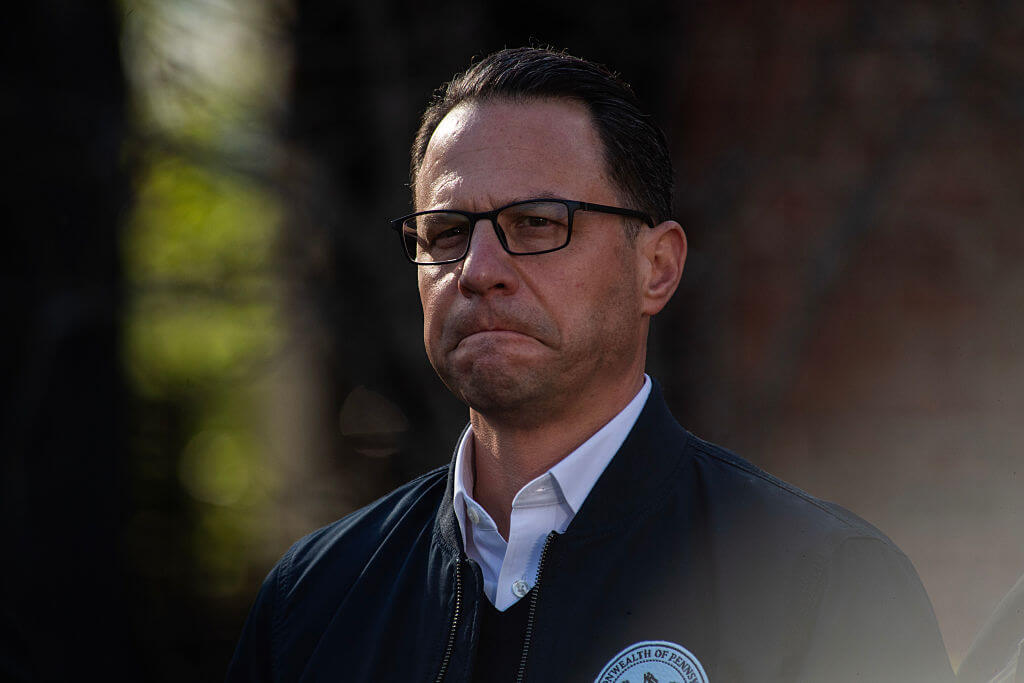Renewing a Historic Partnership
Last week, America marked the 40th anniversary of the historic March on Washington, an event that should not only be remembered for the accomplishments of the time, but also as a milestone in the great civil rights alliance between blacks and Jews.
For years, the black and Jewish communities in the United States have worked together to combat racism, antisemitism and discrimination. Time after time, blacks and Jews have stood side by side when we have needed each other most. Today, perhaps more than ever, the historic partnership that has existed between the two communities is in need of revitalization.
During the civil rights movement, Jews and blacks stood together, and at times died together, fighting so that blacks could enjoy the unalienable rights that were guaranteed to all Americans in our country’s Declaration of Independence. Moreover, when the National Association for the Advancement of Colored People and many other civil rights organizations were formed, Jews helped give them life and served in leadership capacities. Jewish religious leader Rabbi Abraham Joshua Heschel reaffirmed the Jewish commitment to the civil rights movement when he noted, “No man has a place in this world who tries to keep another man in his place.”
In return, blacks have always stood by the American Jewish community. The Jewish community knows that it can always count on the overwhelming support of black members of Congress. Whether it is securing foreign aid for Israel, moving the American embassy to Jerusalem or supporting Israel during the peace process, I, along with my black colleagues, have always voted with Israel.
Furthermore, black members of Congress have been firm supporters of efforts to obtain Holocaust restitution and some of the most outspoken critics of the increasing waves of antisemitism in the world. Just this past spring, I represented the United States, along with former New York City mayor Rudolph Giuliani and others, at a world conference in Austria focused on antisemitism. In this capacity, I addressed the conference on antisemitism in the media and the need for increased dialogue as a tool for combating racism and prejudices of all kinds.
Yet in spite of a long shared history and a strong connection, a small, but growing, degree of tension today exists between the black and Jewish communities. This is terribly disturbing to me. While much of this tension has arisen from misunderstandings and political disagreements, we must accept that differences of opinion are sometimes unavoidable. The tension that results from such conflicts, however, could be significantly reduced if blacks and Jews were to communicate more than we currently do, particularly on the issues on which we agree and can cooperate. And there are many.
Certainly these issues include Israel, the Middle East, Africa and civil rights. But they also encompass healthcare, housing, jobs, the economy, education and prescription drug coverage. These issues, of course, are not just black or Jewish issues. On the contrary, they are American issues that all of us are concerned about and to which all of us are seeking solutions.
The discussions that have taken place between blacks and Jews on the sensitive issues of racial tension, religious acceptance and true equality have yielded a much better sense of mutual understanding between the two groups. Unfortunately, these discussions are too few and far between.
It is time for the black and Jewish communities to recommit themselves to this historic coalition before it becomes too late. Yes, national groups can lead, and they ought to. But only so much can be done from Washington, New York or Miami. If partnerships are not built in every city, town and neighborhood in America, the benefits that result from the hard work of many will never be realized by all.
Throughout the country, the black community must increase its participation in programs that expose blacks to the history of the Jewish people and the uniqueness of the Jewish religion. Interfaith services have long provided opportunities for people to meet and learn from one another. They must continue to happen, but new opportunities also need to be created. Black leaders need to travel to synagogues and temples to meet with Jewish leaders, and the Jewish community must reciprocate.
The Jewish community must not only participate in ceremonies that honor black leaders, but they must plan and coordinate them. The Jewish community must also continue to support efforts to make black history part of mainstream educational curricula, as opposed to just being taught during February’s 28 days. Black history is American history, and it ought to be treated as such. Ultimately, both communities must continue to be engaged with one another, on a multitude of levels, even when times are good. This work will undoubtedly pay off when times are not.
In Washington, black and Jewish members of Congress also need to be doing more to establish an atmosphere in which multiculturalism is not only encouraged, but also practiced. For example, my office’s summer internship program has long included, at the very least, one black student representing the Congressional Black Caucus Foundation and one Orthodox Jewish student representing the Union of Orthodox Jewish Congregations. Over the years, the program has also included Hispanic, American-Indian, Asian-American and foreign students. These students leave my office not only with a better understanding of the legislative process, but also with a multicultural view of America.
Indeed, efforts to improve relations between and among groups must not be limited to the black and Jewish communities. Instead, communication between people of all backgrounds, religions and ethnic groups must increase. There is too much at stake to place barriers on our coalitions. If we fail to recognize the personal responsibility that each one of us holds in these important partnerships, then the subconscious prejudices that each one of us still maintains — whether or not we are willing to admit they exist — will never be overcome.
Speaking on the 23rd anniversary of the Emancipation in 1885, Frederick Douglass, a freed slave and abolitionist, noted, “The life of the nation is secure only while the nation is honest, truthful and virtuous.” We must heed his words and allow the truthfulness and honesty of which he spoke to guide the black and Jewish communities of America as we write the next chapter in this historic friendship and partnership.
The Forward is free to read, but it isn’t free to produce

I hope you appreciated this article. Before you go, I’d like to ask you to please support the Forward.
Now more than ever, American Jews need independent news they can trust, with reporting driven by truth, not ideology. We serve you, not any ideological agenda.
At a time when other newsrooms are closing or cutting back, the Forward has removed its paywall and invested additional resources to report on the ground from Israel and around the U.S. on the impact of the war, rising antisemitism and polarized discourse.
This is a great time to support independent Jewish journalism you rely on. Make a Passover gift today!
— Rachel Fishman Feddersen, Publisher and CEO
Most Popular
- 1

News Student protesters being deported are not ‘martyrs and heroes,’ says former antisemitism envoy
- 2

Opinion My Jewish moms group ousted me because I work for J Street. Is this what communal life has come to?
- 3

News Who is Alan Garber, the Jewish Harvard president who stood up to Trump over antisemitism?
- 4

Fast Forward Suspected arsonist intended to beat Gov. Josh Shapiro with a sledgehammer, investigators say
In Case You Missed It
-

Books What is ‘Zionism without Zion?’ New history asks, but can’t answer
-

Fast Forward Shapiro recites Priestly Blessing given to him by fire chaplain after Passover arson
-

Opinion Israel just threw another wrench in the peace process — and possibly doomed the last hostages
-

Culture In the new Fantastic Four trailer, a glimpse of Yancy Street’s Yiddishkeit
-
Shop the Forward Store
100% of profits support our journalism
Republish This Story
Please read before republishing
We’re happy to make this story available to republish for free, unless it originated with JTA, Haaretz or another publication (as indicated on the article) and as long as you follow our guidelines.
You must comply with the following:
- Credit the Forward
- Retain our pixel
- Preserve our canonical link in Google search
- Add a noindex tag in Google search
See our full guidelines for more information, and this guide for detail about canonical URLs.
To republish, copy the HTML by clicking on the yellow button to the right; it includes our tracking pixel, all paragraph styles and hyperlinks, the author byline and credit to the Forward. It does not include images; to avoid copyright violations, you must add them manually, following our guidelines. Please email us at [email protected], subject line “republish,” with any questions or to let us know what stories you’re picking up.











